The Bible plays an iconic role in American political discourse. For example, Roman 13 was cited by people wanting to enforce immigration reform and encourage people to follow pandemic restrictions. Beyond being looked at for guidance, the Bible has also been an important material symbol for people in the United States.
During Trump’s presidency, people asked him to sign their Bibles after tornadoes hit Alabama, and he posed with it at an infamous photoshoot in Washington, D.C. Throughout United States history, the Bible has been an important symbol and source of guidance within our political discourse.
Author Kaitlyn Schiess wrote “The Ballot and The Bible: How Scripture Has Been Used and Abused in American Politics and Where We Go From Here” to address how the Bible has been employed in the United States’ political discourse. Schiess addresses what she sees as proper uses and misuses of the Bible when we talk about politics. Schiess is one of three hosts of the “Holy Post” podcast and is a doctoral student at Duke. Her previous book is titled “The Liturgy of Politics: Spiritual Formation for the Sake of Our Neighbor.”
Religion Unplugged contributor Kenneth Ethan Frantz interviewed Schiess over Zoom about her new book and the role the Bible has played in United States politics throughout its history. This interview has been edited for clarity and length.
Kenneth Ethan Frantz: Your book addresses the use of the Bible in politics throughout American history. Why did you choose to write about that, and why did you think it was important to address?
Your tax-deductible gift helps our journalists report the truth and hold Christian leaders and organizations accountable. Give a gift of $30 or more to The Roys Report this month, and you will receive a copy of “Hurt and Healed by the Church” by Ryan George. To donate, click here.
Kaitlyn Schiess: In a broader sense, I’m really interested in how we read Scripture for political purposes. How does Scripture inform political theologies in different times and places? And I really wanted to write a book that talked about that to help especially people — in churches, but other people as well — have better conversations about politics, especially among people who think of Scripture as authoritative over them. But even for people who do not, Scripture has shaped so much of American political life. It’s important for us to understand it. The history part partially came in because I just am really interested in that, and I think it’s helpful for us to know what kind of habits of reading Scripture we inherit as American Christians and non-Christians.
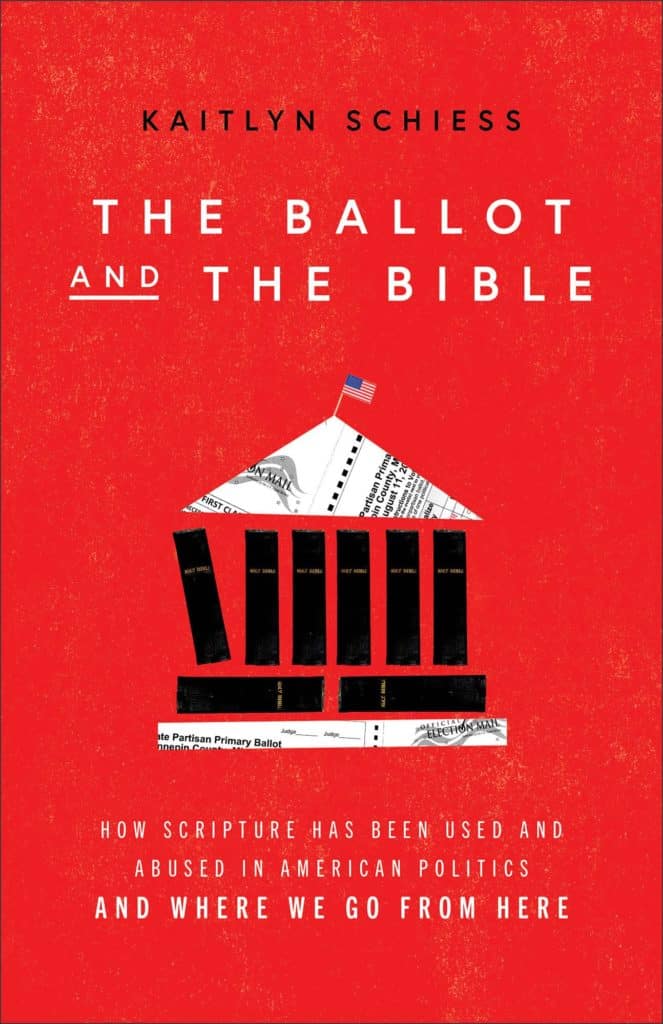
But also because I thought it was really important to ground this work in tangible examples that people could hold onto and say, “OK, what’s happening here? Why was Scripture used in this way, in this political context?” Not just kind of conceptual ideas, but really on the ground how it worked. And then I wanted to use historical examples because I think in a lot of these conversations, part of what happens is we just come in hot. We come in with a lot of opinions and “I know what you’re going to say already, and I’m ready to respond.” I wanted to give historical examples that gave us just a little bit of distance from the examples that we’re talking about to hopefully help lower the temperature a little bit and reflect better on — for example, we might have a big fight in a church or in a community about how Romans 13, that people should obey the government, applies to protests around racial justice or COVID-19 restrictions.
Could we lower the temperature a little bit and look at this example of how Romans 13 was interpreted during the Revolutionary War? And ask, “Do I have qualms with how it was used by this loyalist priest, or how this Revolutionary era preacher responded, or how do those kinds of questions then inform the conversations that we’re having about this when it comes to political issues in our own context?” But I really found that stepping back first and asking the historical question could lower the temperature a little bit, give us a little bit of perspective and distance and insight, and then do the work of asking what that means for the questions that feel pressing for us now.
Frantz: You talk about a variety of different uses of Scripture used in political contexts throughout America — everything from the Revolutionary War to the City on a Hill to the civil rights movement to Trump. Would you mind talking about the reasoning and the logic behind the specific examples you chose?
Schiess: I wanted to, as you just described, give kind of a smattering of examples throughout history. There are some habits we get into that aren’t just rooted in a particular time and place. They really do kind of happen throughout history. And then in terms of the specific examples I chose, I was thinking about what examples kind of push us. We go to Romans 13 a lot to say all of the things I just referenced — to say, “No, you have to follow COVID-19 restrictions,” or “No, you can’t protest racial justice in the streets.” And it seemed like this example of it being primarily loyalist priests who were arguing against the validity of the Revolution, relying on Romans 13, pushes us in a certain way.
I’ve given you a specific example. You could look up the whole text and see, am I right about this? But also to say I want us to be in the habit of doing that with all sorts of things — like not just relying on a news article today that sort of narrates the Democratic or Republican candidates’ relationship to religion, but saying, “OK, if this article references this speech they gave, let’s spend some time really analyzing this whole speech. Let’s look at particular examples that help us think well.” And we wrote with the publisher, Brazos, a study guide. And I wanted that to be true for each of the weeks of the study guide to say, “If you’re reading this together with a small group at your church or with a group of people in your family or community, you can both go to that specific example I gave and spend time reading it together.”
And then I gave scriptural examples of if we’re going to spend a whole chapter thinking about Romans 13, let’s actually just read the whole chapter and spend some time thinking about that as a particular text instead of sound bites. Or, you know, this one time someone said this one sentence — especially thinking about someone like Trump — people love talking about this one answer. I wanted to give an example of, in that chapter, for example, entire articles and speeches that Jerry Falwell Jr. gave and said, “What’s the real rationale here? Let’s follow the entire argument, not let’s pick a soundbite and kind of assume the context and go from there.”
Frantz: And throughout the different examples, and you talk about it in your book, you talk about the Bible both being used well in political contexts and being misused. Would you mind elaborating on what in your mind is like a misuse versus a more productive use of the Bible in American politics?
Schiess: One of the easy misuses — to both give a specific example and a misuse we do quite frequently — the first chapter talks about the city on a hill idea. And this is coming from a speech that John Winthrop gave the governor of the Massachusetts Bay Colony. If you read the entire sermon — historians are not totally sure if he ever even gave it, if he just wrote it — it’s interesting because one of the central things he does that then much later in American history we kind of picked up on and really wanted was describing a special relationship between America and God and using covenantal terms and especially scriptural language that’s describing a covenant between Israel and God, not America and God. And so there’s a ton of misuse that can kind of be put under the category of misunderstanding whom this is addressed to, whether it’s a promise or a critique or really a judgment against someone.

And both have problems in the sense that we appropriate promises to ourselves that are not intended for us. In the case of John Winthrop, suddenly much of the violence and misuse that came in terms of seizing the land that made up the American colonies is described as a divine mandate. God has given us this land, and we can kind of justify doing whatever’s necessary to keep this land because this is the way we’re coming into the land. So that’s kind of classic misuse. Positive uses though — I think some people think, “Oh, OK, well if the misuse is you’ve misidentified yourself in the story, it must mean that all of those big swaths of Scripture that talk about Israel or talk about the church just are inapplicable to us.”
And one of the examples I give of positive use is in — especially during the civil rights movement, but this is especially also true in the Civil War era and the emancipation of enslaved people — was this going to the Exodus and seeing in the Exodus a picture of God who is a liberator on behalf of the oppressed. And I think what distinguishes those two uses — because both of them are seeing yourself in this story that’s not about you and seeing what role you play — I think one of the differences is again, appropriating specific promises of land and prosperity, which is not what enslaved people were doing or what Black Christians were doing during the civil rights movement. They were saying, “We’ve identified who God is and how God characteristically acts, and we’re finding our place in what that means here.” And now part of it’s a question of kind of specificity and what parts you’re appropriating and what parts you’re not.
But I think if there’s any theme across the book in terms of misuse versus good use, it’s not enough to kind of get the hermeneutics right. It’s not enough to say you’ve understood the text. Well, a central question is do you see yourself correctly? So part of the problem with John Winthrop saying, “You know, I am ratifying this covenant with God” is misunderstanding what role he plays and what position he’s in. Whereas one of the characteristics of the positive use during the civil rights movement was a correct interpretation of what was happening. It’s easier for us now with history to see of course the people in the civil rights movement were correct about both the wrongful conditions they were under and what position they played in it. But that’s why kind of a lot of the book in terms of instruction is not so much here’s the hermeneutical rules to follow. It’s we have to rely on diverse communities and the working of the Holy Spirit to help us discern where we are here and now — what is God demanding of us, and how do we respond, and what role do we play? And just correctly exegeting a passage like the description of the Israelites’ exodus from Egypt isn’t going to get us there. It’s going to require some other things as well.
Frantz: You do compare the White biblical hermeneutic and political uses to the political hermeneutic of the Black church or the African American church. Would you mind expanding on that and elaborating on those differences and why you felt the need to point those out?
Schiess: And I think one way to describe it well is in the chapter on the Civil War. There’s a lot of interest today in the biblical hermeneutic of both people who were enslaving other people and the White abolitionists who were using the Bible to argue against slavery. And a lot of the stuff that gets written about that sort of pairs those two perspectives as the two parallel perspectives.
And I think what it unwittingly does is basically prioritize White interpretation, whether it’s for or against slavery. And the people who were for slavery often are often described as taking a literalist approach — like the Bible says Abraham had slaves. Paul says, “Slaves obey your masters.” There you go. It’s not a discussion. Then the White abolitionists are often described as taking a hermeneutic of love or applying some more contemporary for their time critical approaches to Scripture. What I think a lot of those descriptions of what was happening miss is that really both of those groups of people were trying to pull from Scripture these universally applicable rules that fit the kind of philosophical era that they were in of, “I’m just looking for — underneath all of the historical particularities — I’m looking for the gem of universal truth that’s underneath.”
And that’s in contrast to enslaved and free Black interpreters of the period who were less influenced by those European modes of biblical interpretation and also were in a different social position to ask different questions of Scripture. And had been in a different church tradition, even often underground church tradition in that era that said, “We belong to the people of God across time and space, and we’re separated in a certain sense. But in another sense we are not — we are Israel and Egypt. We are the early church experiencing what it experienced.” And so the questions they asked were different. They weren’t looking for this universal rule underneath all the historical particularities. They were looking for the historical particularities and saying, “What does this story mean for us here and now? What role do we play in it?” There’s a lot more I could say in terms of how songs and practices and preaching all went into that. It’s important to say that this wasn’t just a conceptual difference. They thought about Scripture differently. That was true. But that way of coming to think about Scripture was born out of experiences of suffering but also, very importantly, experiences of communal worship and practice that were very different from how most White Christians were experiencing the faith at the time.
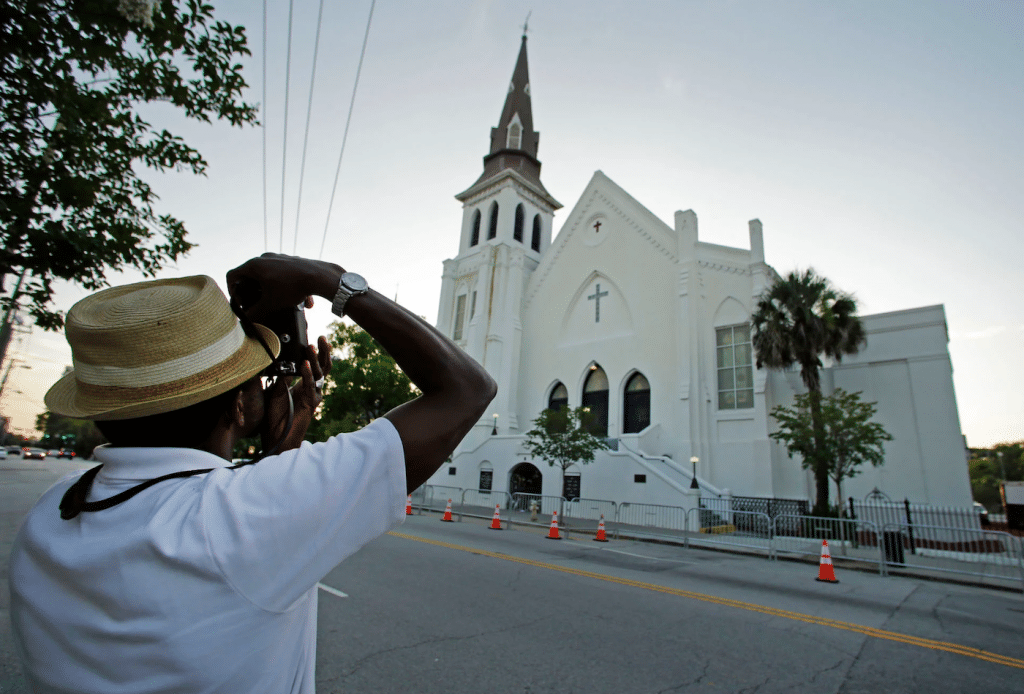
Frantz: Another theme that you bring up throughout the book is how different presidents have used the Bible — Reagan, Bush, Obama, Trump — and how they used it in speeches and how they did or didn’t use it to justify certain policy decisions or how other people used structure to defend or critique them. Why did you think that was important to bring up?
Schiess: I thought having some emphasis on the American presidency was important because America has this strange history where we’ve never in totality had a state church. There’s a complicated early history, but we’ve never had a real state church, and yet we’re a country that cares deeply about being a religious country, especially being a Christian country. You have this weird combination of part of our history involving a bunch of big disputes about religious freedom and we don’t want people to tell us what to do, and we don’t want there to be this hierarchical system instructing people in religion. And yet we care really deeply that our leaders are Christians. We care deeply that they’re religious, but really in America, what we really mean is that we want them to be Christians. And so I think the presidency is an interesting place to look for what do we actually want, what do we say we want and what do we really want.
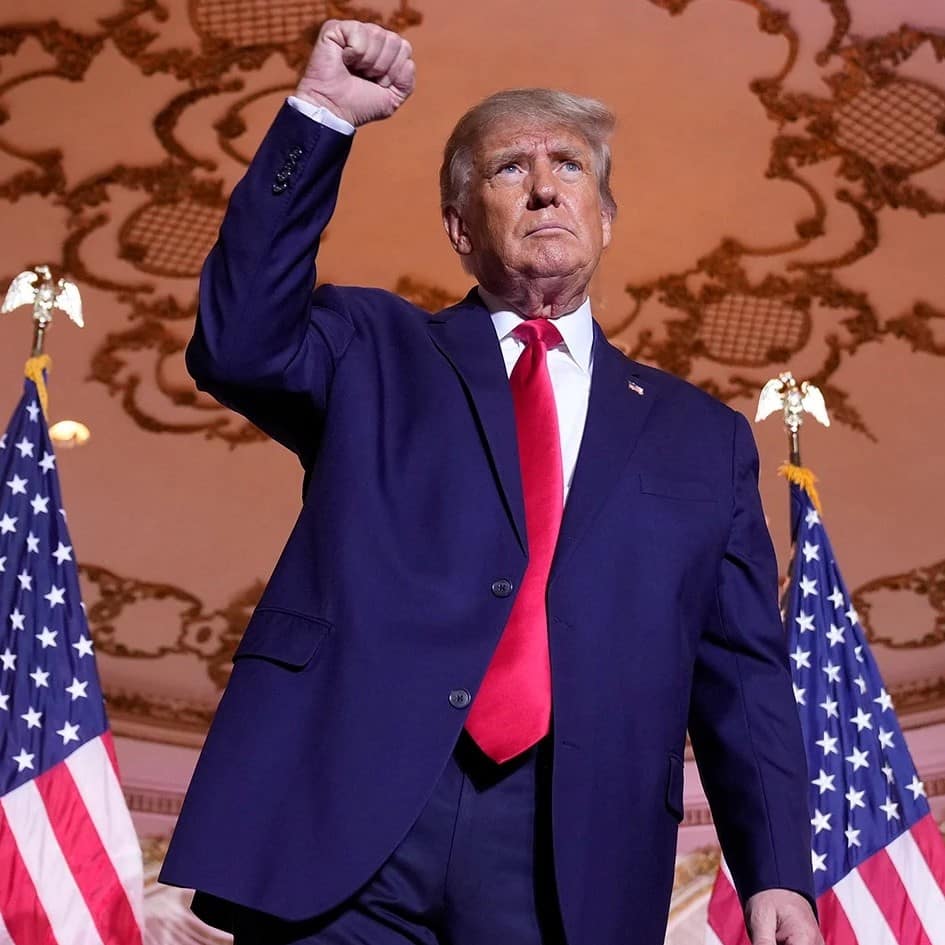
And what I found, especially in the last few presidencies, is that we want mostly a president who fits our idea of what a Christian looks like, and we’re more interested in their identity and that they belong to what we consider the Christian community. Then we care that their policies are influenced by Christian theology or doctrine. In fact, even Christians in America are often quite uncomfortable with politicians being too openly Christian in terms of connecting their Christianity to their politics. But we are very concerned that they say they go to Bible study or that they have a conversion story or that they talk about belonging to a church. And that’s interesting to me. I want us to reflect on what we really want when we say we care about the faith of our leaders. Is it that we want to know that someone that’s on our team is in charge?
Do we want them to use Christian language? Is that important to us, or is it important to us that the policies that they’re enacting are rooted in Christian ideas about the world? And if that is true, then we have to have a whole other conversation. And that’s kind of what I’m trying to do throughout the whole book of what that really means. How would we connect those scriptural passages or those Christian doctrines to policies? And that’s going to be a much harder conversation than just a president checking a box that they belong to the team that we’re on.
Frantz: While you do respect pluralism, you are defending people’s right to bring their religious identity into the public square. And that brings me to John Neuhaus’ “The Naked Public Square.” Where do you see yourself as fitting in that broader conversation, like Neuhaus, and with other people in that conversation? Why do you think that’s an important conversation to have?
Schiess: I would describe my own position as deeply committed … to a version of pluralism that does not require that people check their most deeply held commitments at the door. I’m doing a lot of talking about this book right now, and I’m sitting in my office, in my house, and my nextdoor neighbors who I see out on the street all the time — there’s a bunch of little kids. It’s a Muslim family. I think often about the fact that the women in that family especially, but the men in some ways as well, can’t be out in public without people having some sense of their religious commitments. There are physical reminders to people that they are religious people and that they have deeply held commitments that are shaping their life.
And I think a lot of Christians who have become uncomfortable with the way that Christianity has been used in our political life have been tempted to say, “Let’s check our religious beliefs at the door out of concern for other people.” I think there’s a good concern there. And yet I think it ignores the fact that there are lots of religious people of variety of faiths in the United States that don’t have the same ability that we have to sort of easily assimilate on the surface and not look like we’re bringing religious faith and into public life. And I also think it leads to greater deception in our political life. I think there’s a difference between saying, “I want to articulate to someone who doesn’t share my religious beliefs why they should agree with me on this policy” and saying, “I’m going to tell you that my motivations for believing in this policy are different than the ones I actually have.”
I want people to say, “I actually believe that the Old Testament tells us that God judges nations by how they treat foreigners. And so I care about the justice of the immigration policies in my country.” If you don’t share my concern for what the Old Testament says, I want to be able to articulate that my support of these good immigration policies in terms that you’ll agree with. I think that’s part of being hospitable. A good neighbor is articulating things in terms of people will understand. What I don’t want people to do is say, “It’s just too uncomfortable and it’s too messy for you to even bring up the Old Testament in this conversation. You’re violating some rule and so don’t do it.” I think that leads to greater deception because I’m not being honest about where my motivations are coming from, and I think it ends up really hurting and excluding religious minorities in the U.S. that don’t often have the same ability to kind of hide the religious motivations for their involvement in public life.
I think that’s a position a lot of people are better describing nowadays than they have in the past, both out of concern for real religious diversity and because, again, if we’re going to really come to this place of saying that religion doesn’t have a role in our public lives, then we’re really pushing out a lot of great examples in our own history of religion, playing a role toward great political justice. I want the civil rights movement to be the greatest example of Christian faith in public life. And if we’re going to say you have to check your beliefs at the door, we’re really disregarding the power of a movement that sang hymns on the way to protests and that used churches to practice spiritual practices to sustain themselves in the face of injustice. I want to honor that history and replicate that. I want to learn from them rather than saying, “Our history of the White evangelical engagement in politics is too messy for me to do anything with faith in public life anymore.”
This story was originally published by Religion Unplugged.
Kenneth E. Frantz is a freelance writer who has written for ReligionUnplugged, Sojourners, Real Clear Religion, and Religion and Politics. Twitter: @KennethEFrantz.
Receive a copy of “The Ballot and the Bible” when you support The Roys Report this month. Click below for details.




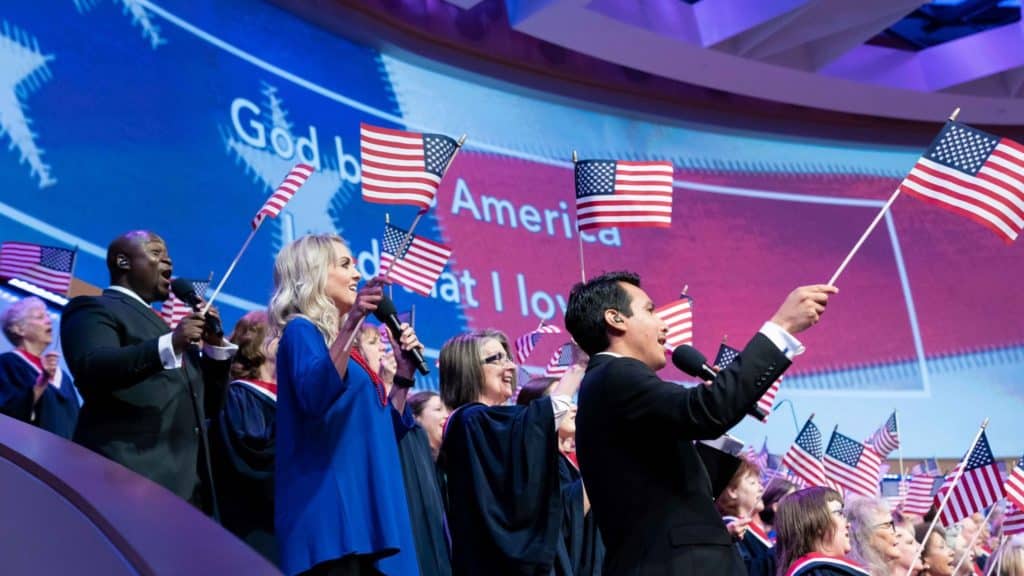
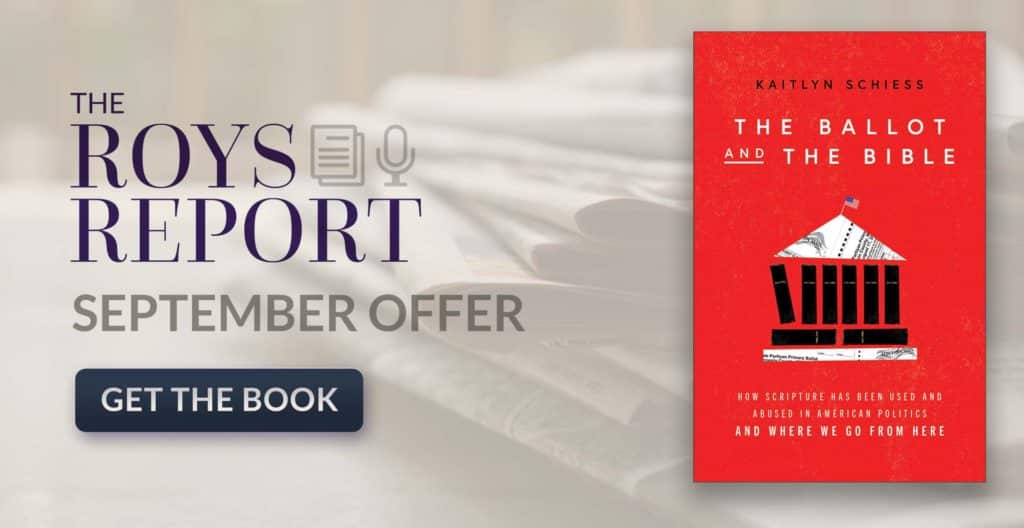

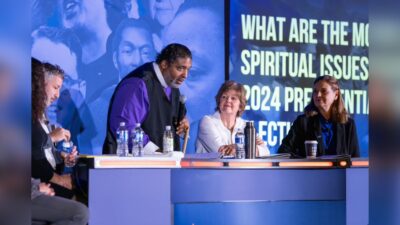
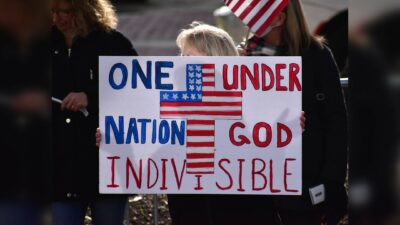

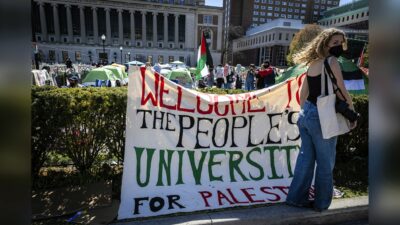

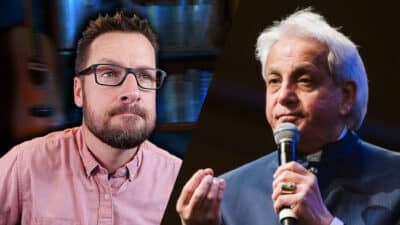
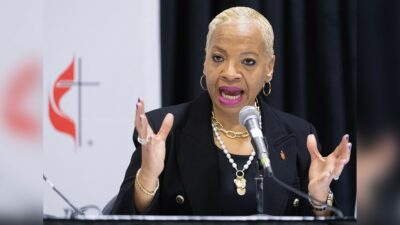







8 Responses
On a popular level most Evangelicals don’t adhere to the basic principles of Biblical interpretation. For many of them the Bible is a repository of proof-texts that can be used to support any position (Not always wrong or not always right). For many the pesher method is used which often ignores the original intended meaning of the text and then assumes that the desired contemporary interpretation-application is most important.
The phrases “This what God says” “The Bible says” “This is what God’s word says” are often prefixed or suffixed onto the interpretation in order to establish it as authoritative and unquestioned.
Since we have no state church there is no magisterium to approve of any interpretation and it’s application. The ‘free market’ of religion in America allows for any interpretation of the Bible to thrive for better or for worse.
perfectly stated and I agree whole hardily. the American evangelical complex has abused the bible for their own self virtue signaling. Unfortunately, I have grown weary and untrusting of much that comes from a human vs god enlightening me by just merely reading his word and hearing his guidance. Guidance I don’t use to ensure people listen to ME ME ME.
A simple rule of thumb for Christian exegesis should be to replace “biblical” with “Christlike.” After all, revealing Christ is the whole purpose of the bible. An issue such as slavery may be debatably “biblical,” yet completely un-Christlike. Maybe we should bring back the cheesy WWJD bracelets, so we don’t forget our guiding ethic.
my favorite is when some member of the American evangelical industrial complex tells us he/she have received a word of knowledge. I’ve yet to not see it’s actually not a word of knowledge but their own bias way to fit a narrative they trying to exploit for ego and money. Covid closure where I went online and watched a lot of people I USED to respect, abuse scripture over and over and always added that “Gods prophets will not be mocked, which is code for, you better be more scared of me whose in front of you than god because he will get ya.”
MAT 7: 21-23
My journey through the here reported interview exchanges was characterised by, both accepting and respecting Kaitlyn’s approach (so recognising that there was scope for sustained discussion with her and learning from her), and finding the holistic understanding I could take away was so dynamic and volatile (so the heat metaphor applies) that nothing definitive was there to be grasped.
I think I struggle with the ideas or binary of proper use and misuse, my sense being: that we cannot transcend ourselves in making this distinction; that multiple differing judgements will exist on every instance; that we cannot lift the binary out of the public domain political/theological swirl.
If we take the John Winthrop instance. It is coherently arguable that Winthrop would there be lifting the dynamic thesis (the manner in which OT epistemology worked and works to mediate Jewish ontology) of the OT, and applied it holistically to yield the same generic outcome in the American colonial setting and time, the Biblical epistemology here mediating Christians and Christian dominion to mirror mediation of Jews and Jewish dominion. To argue that this is misuse, would be underpinned by a complex hermetic applying itself to the Bible. What we have is, that proper use and misuse adjudications, each relies for that adjudication outcome on complex hermetic understandings of the Bible.
I really liked Kaitlyn’s approach to white and black Christianity in the USA. I think she there manifests the wisdom she is seeking to nurture.
Contra the caption, this is technically the fourth time Trump has run for President. He ran in 2000 as a Reform Party candidate.
In the 80s the apostate church leaders joined forces with Ronald and Nancy Reagan who were not Christians but relied on astrologers, a self professed white witch and psychics to make personal and political decisions; together they laid the foundation for the cult of Trump. What drew them together was simply a lust for power and greed.
It can also be useful to read about the full life of a leader and how his or her faith grew and developed over that lifetime, inside and outside of politics. An example is the book about Ronald Reagan by professor and historian Paul Kengor, God and Ronald Reagan. See the publisher’s website for more about the book,
https://www.harpercollins.com/products/god-and-ronald-reagan-paul-kengor?variant=32130916581410